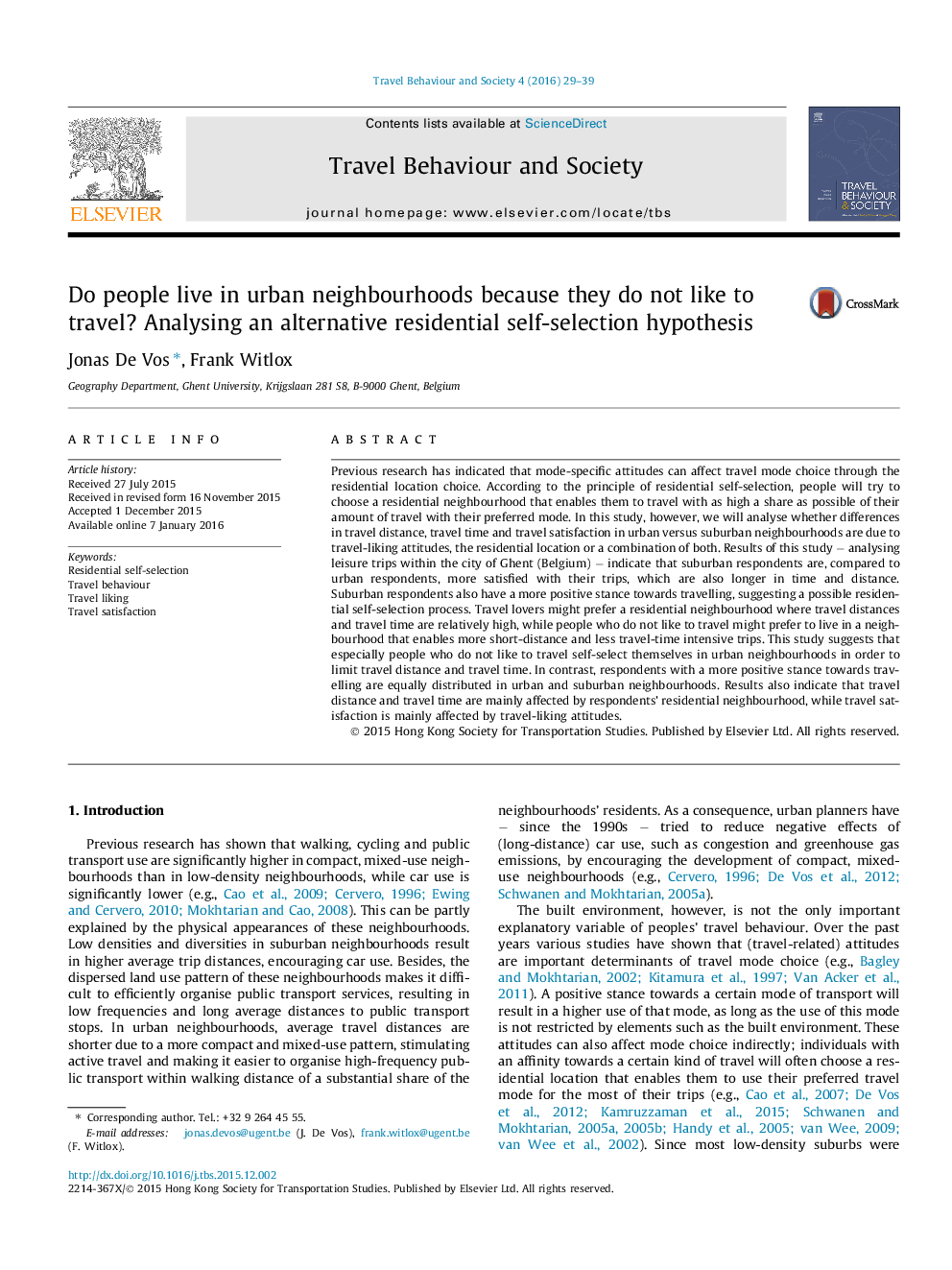| کد مقاله | کد نشریه | سال انتشار | مقاله انگلیسی | نسخه تمام متن |
|---|---|---|---|---|
| 141295 | 162850 | 2016 | 11 صفحه PDF | دانلود رایگان |
Previous research has indicated that mode-specific attitudes can affect travel mode choice through the residential location choice. According to the principle of residential self-selection, people will try to choose a residential neighbourhood that enables them to travel with as high a share as possible of their amount of travel with their preferred mode. In this study, however, we will analyse whether differences in travel distance, travel time and travel satisfaction in urban versus suburban neighbourhoods are due to travel-liking attitudes, the residential location or a combination of both. Results of this study − analysing leisure trips within the city of Ghent (Belgium) − indicate that suburban respondents are, compared to urban respondents, more satisfied with their trips, which are also longer in time and distance. Suburban respondents also have a more positive stance towards travelling, suggesting a possible residential self-selection process. Travel lovers might prefer a residential neighbourhood where travel distances and travel time are relatively high, while people who do not like to travel might prefer to live in a neighbourhood that enables more short-distance and less travel-time intensive trips. This study suggests that especially people who do not like to travel self-select themselves in urban neighbourhoods in order to limit travel distance and travel time. In contrast, respondents with a more positive stance towards travelling are equally distributed in urban and suburban neighbourhoods. Results also indicate that travel distance and travel time are mainly affected by respondents’ residential neighbourhood, while travel satisfaction is mainly affected by travel-liking attitudes.
Journal: Travel Behaviour and Society - Volume 4, May 2016, Pages 29–39
